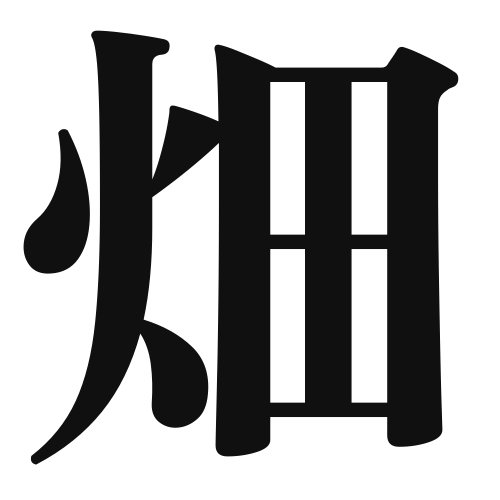1. Overview of Meaning
The kanji “畑” (hata) means “field” or “farm.” It specifically refers to cultivated land, often used for growing vegetables and crops.
2. Formation and Radicals
The kanji “畑” is a compound character, formed by combining two elements: the radical “田” (ta), which means “rice field,” and the character “博” (haku), which can imply “wide” or “broad.” This combination suggests a broad area of cultivated land.
The radical “田” is significant as it relates to agriculture and farming, which is central to the meaning of “畑.”
3. Examples of Usage
Common words and phrases that include “畑” are:
- 畑仕事 (hata shigoto) – farm work
- 畑作 (hata saku) – field crops
Example sentence in daily conversation:
「私の家の近くに大きな畑があります。」(Watashi no ie no chikaku ni ookina hata ga arimasu.) – “There is a large field near my house.”
4. Synonyms and Antonyms
Similar kanji with related meanings include:
- 農場 (noujou) – farm (larger scale, often with livestock)
- 田んぼ (tanbo) – rice paddy (specifically for rice cultivation)
Antonyms include:
- 都市 (toshi) – city (referring to urban areas)
5. Cultural and Historical Background
The kanji “畑” is deeply connected to Japanese culture, where agriculture has historically played a vital role in society. Fields are often depicted in traditional art and literature, symbolizing abundance and sustenance.
Proverbs and idioms related to “畑” include:
- 「畑を耕す」(hata o tagayasu) – “to cultivate a field,” which means to prepare for future success.
